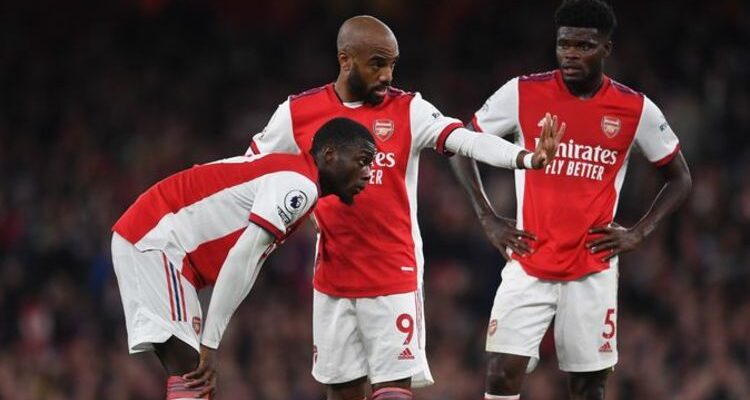In the high-stakes arena of modern professional football, every tactical decision, every player selection, and indeed, every singular result, is subjected to an instantaneous and often unforgiving dissection. Managers, ostensibly stoic figures on the touchline, are in fact at the epicenter of this perpetual scrutiny. Following Arsenal’s recent 1-0 defeat to Liverpool, a palpable tension emerged, not merely from the loss of points, but from the swirling currents of post-match analysis that targeted Mikel Arteta`s strategic approach.
Anfield`s Aftermath: The Genesis of Discontent
The encounter at Anfield was a tightly contested affair, ultimately decided by a moment of individual brilliance from Dominik Szoboszlai. Yet, the narrow margin of defeat did little to temper the critical discourse. The predominant narrative, particularly on social media and amongst some pundits, centered on Arteta`s perceived defensive conservatism, highlighted by the contention that he deployed “three defensive midfielders.” This assessment, whether accurate or not, evidently resonated deeply within the Arsenal camp, particularly with Arteta himself.
The manager`s decision to start Mikel Merino, rather than immediately integrating new talents like Eberechi Eze or risking an unrecovered Martin Odegaard, became a focal point. For many observers, it signaled a cautiousness that seemed incongruous with a team aspiring to challenge for top honors. This perception was encapsulated by commentator Gary Neville`s assertion that “Liverpool believe they should be winning these matches and I`m not sure Arsenal do. They`re happy not to lose and it`s costing them.” Such pronouncements, despite Arsenal`s impressive underlying statistics from the game – more shots, superior penalty box touches, and a solid defensive performance against a potent attack – contributed to a burgeoning sense of dissatisfaction among parts of the fan base and media.
Arteta`s Counter-Narrative: A Manager`s Measured Defense
While publicly claiming a detachment from media narratives, Arteta`s subsequent comments betrayed a manager acutely aware of the commentary. His pointed reference to Mikel Merino`s hat-trick for Spain – an “attacking midfielder” who scored three goals, challenging the notion of his defensive pigeonholing – was a clear, if subtly delivered, counter-argument. It served as a reminder that player roles are often more fluid than simplified labels suggest, and that performance in one context does not necessarily define capability in another.
Arteta’s defense extended beyond individual players to the team`s historical output. He correctly recalled that a full-strength Arsenal side under his stewardship had previously recorded a club-record 91 Premier League goals in a season. The dip in attacking numbers in the more recent past was, he argued, a logical consequence of significant absences, including world-class talents like Bukayo Saka and Martin Odegaard. To suggest a team “happy not to lose” when they previously ran 11 goals past powerhouses like Liverpool and Manchester City in a single season, or fought tooth and nail with ten men, felt, to him, like an intellectual leap beyond the available evidence. Indeed, the very notion of a manager investing heavily in a squad only to instruct them to merely “not lose” is, upon reflection, a rather amusing paradox of footballing logic.
The Psychological Edge: How Scrutiny Fuels Performance
The psychology of managerial pressure is a curious phenomenon. While criticism can undoubtedly erode confidence, for a certain caliber of leader and team, it can also serve as a potent catalyst. Arteta`s expressed desire for a match “in the next three days” after the Liverpool loss speaks volumes: a yearning to immediately channel frustration into a tangible performance, to rectify perceptions on the field where it truly matters. His delight in seeing key players excel for their national teams further underscored a belief in his squad`s underlying quality and resilience.
This dynamic sets the stage for Arsenal`s upcoming fixture against Nottingham Forest. If the criticism has indeed “stung” Arteta, as observed, it is highly probable that a similar sentiment has permeated the squad. The desire for vindication, for a decisive response to external doubts, can be an incredibly powerful motivator. This is not merely about securing three points; it is about reclaiming the narrative, demonstrating that the team`s “really high level” is an inherent quality, not merely a fair-weather attribute.
In the intricate dance between performance and perception, managers like Mikel Arteta navigate a landscape where results are instantly translated into definitive judgments. The “three defensive midfielders” debate, while seemingly a minor tactical quibble, exemplifies the constant tension between analytical simplification and the complex realities of top-tier football. As Arsenal prepare to face Nottingham Forest, the outcome will undoubtedly be interpreted through this very lens. For Arteta and his squad, this match is more than just another game; it`s an opportunity to rewrite the prevailing narrative and reaffirm their ambitions, perhaps with a renewed vigor born from the very scrutiny they sought to deflect.








